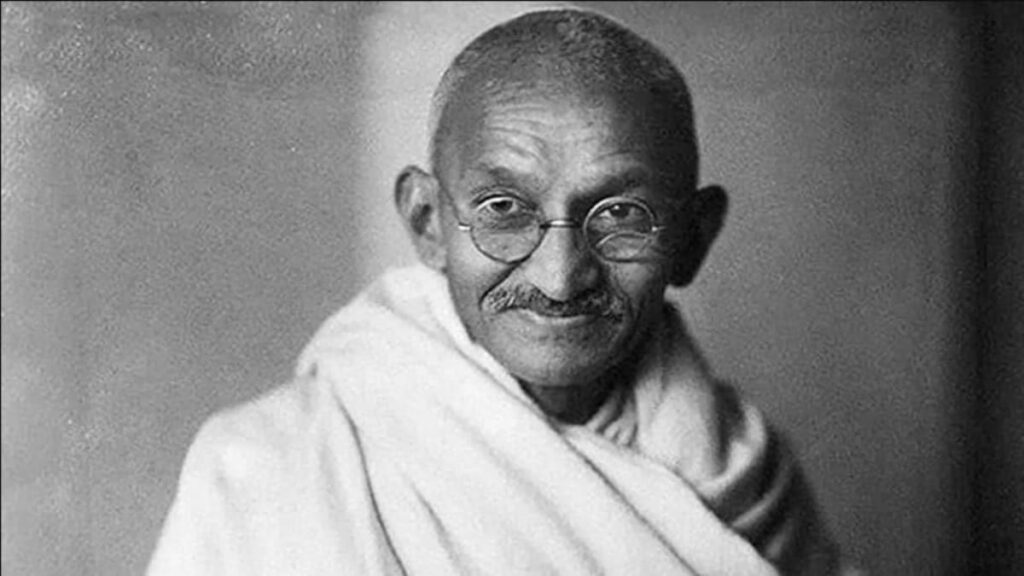The 2nd of October is a very important day in India, for it is the day we celebrate one of the greatest figures in Indian History- MohanDas KaramChand Gandhi or as we love to call him ‘Mahatma Gandhi’. We have many other great figures in the world, but getting your name etched in history and having your existence celebrated throughout the nation is not easy to achieve. Today, let’s take a moment to look away from his glorious achievements and dive into his suffering that made him the father of the nation.
We know of him as a pure and moral being, ignoring his humanity and faults that make him like us- a common man, we tend to look at his achievements with a sense of awe and greatness. Something that we ‘think’ we can never achieve. In his autobiography, My experiments with truth, Gandhiji has mentioned his inspiration that came from two plays he read during his childhood. King Harischandra, a story of sacrifice and Shravana Pitrabhakti Nataka; a child’s devotion to his parents.
Gandhi in his book also mentioned his shortcomings such as perversion; consumption of meat, smoking and stealing which was followed by atonement upon reflection. As much as we respect Mahatma Gandhi, we simply cannot relate him to a normal life. He led many movements through nonviolent civil disobedience and achieved his goal of freeing India from British occupation, and that is a task a common man would not even dream of achieving. But some other common men were inspired by Mahatma Gandhi too, he received acknowledgement from the whole world for his achievements in his spiritual, moral and political undertaking.
Gandhi’s Humanity
- Gandhi turned his back on his culture to get integrated into British posh society, ate meat, abused substances, indulged his body and mind with senseless luxury and the most heart breaking, missed his father’s death. His aura and intelligence was not born with him, he gained them through suffering and loss.
- As a young man, he delved into self indulgence and drowned in sadness, anger and confusion- finally leading him to the decision to learn law from England.
- Got kicked out of his caste because he wanted to go out of his country to study: his intention was to help his country, but before he began, his country abandoned him.
His Arcane Explorations
- Fought against racial discrimination in Africa; the idea of fighting for others in today’s generation is common. We have broken out of slavery and embraced equality the best we could, and Mahatma Gandhi, the icon of human rights, is one of the many inspirational people to have taught us this. In 1893, Mohandas Karamchand Gandhi, with big dreams, arrived in South Africa. There, he faced modish discrimination for his color. Simultaneously, the ‘Natal Assembly’ was intending to hurl another prohibition: disempowering voters not of European decline and Mohandas Karamchand Gandhi became the chief of the Indian community to contest the law. Though his efforts could not stop the bill from passing, the Indian community there united and formed Natal Indian Congress.
- First battle won of nonviolent civil-disobedience at Champaran. In 1915-1917, Gandi found his way back to India which had fallen under British rule. Champaran, a district in the state of Bihar, the locals were under the tyranny of the British, forced to grow indigo and cash crops and sell it to them at a low and fixed price. Combined with heavy taxation and bad weather, the people were basically living in a slavish poverty. Unable to withstand the suffering of his fellow countrymen, Gandhi stratized nonviolent civil-disobedience protest against landlords winning him signed agreement granting more compensation , control over the farms and relieved tax till the end of the ongoing drought. This event led to people to give him the title of ‘Mahatma’.
Led the non cooperation movement in early 1920: Jallianwala Bagh, a black spot in history, a moment that should never have happened, when the britishers blocked the only exit and openly fired on a crowd of non violent protesters, indiscriminate of the young and the old. In retoraction, Gandhi started a non-cooperation movement encouraging the enraged citizens to boycott British products, their institutions and courts, and renounce whatever titles and honors they provided- a complete alienation which was highly successful. However, anger can only be contained so much, when an angry mob burned a british police station, Gandhi had to put the movement to an end.
Conclusion
“By changing ourselves”, Gandhiji said “we can change the world around us”, the world is nothing but a reflection of ourselves. Today, let us all take a moment to remember Gandhiji who was an inspiration to many other inspirational personalities we all look up to i.e, Martin Luther King Jr. and Nelson Mandela. Gandhijii wasn’t perfect, it is in his faults that he found his path and his life.

